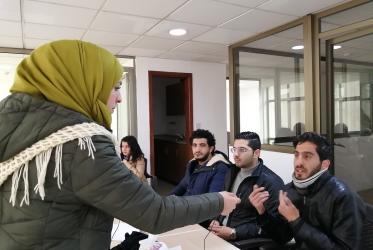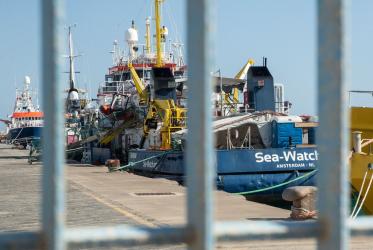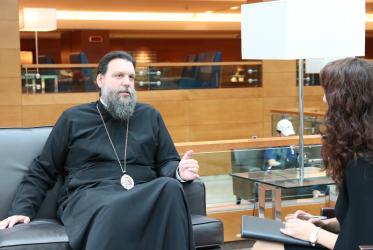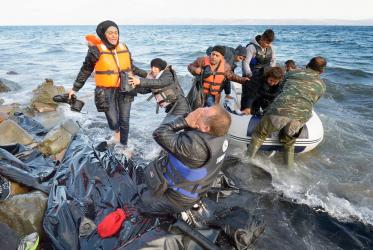Displaying 1 - 20 of 35
Are migrants seen and heard? Conference presses the question
19 October 2020
‘European humanitarian corridor’ proposed
02 May 2019
A faith-based, holistic approach to HIV and AIDS-care
13 March 2019
Christian communicators work to counter hate speech against refugees
10 December 2018
World conference on xenophobia, racism, and populist nationalism in the context of global migration
18 - 20 September 2018
Ergife Palace Hotel, via Aurelia 619, Rome, Italy
Conference explores Christian approach to borders
05 October 2017
In Lebanon, refugees face hardship - but find hope
16 March 2017













